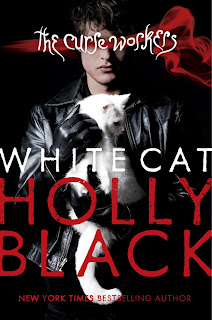
The Summary: In Bechdels affecting account of her relationship with her late father, personal history becomes a work of amazing subtlety and power. Bechdel grew up in a small Pennsylvania town, in a Victorian house that her father was painstakingly restoring to its period glory. Distant and exacting, Bruce Bechdel was an English teacher and director of the town funeral home, which Alison and her family referred to as the "Fun Home." It was not until college that Alison, who had recently come out as a lesbian, discovered that her father was also gay. A few weeks after this revelation, he was dead, leaving a legacy of mystery for his daughter to resolve. -- from GoodReads.Com
My Impressions: I will confess that I... don't really know how to go about reviewing this. It's been a long long time since my last GN when I read Fun Home, and while I do know how to approach a manga/manhwa review, this GN... Not so much. For me, the ART is very essential to the telling of the story in comic-formatted works, but my aesthetic for art is just so very different from the way this one is done. I'm used to flowing lines and spread pages, not these blocks of squares that I think is more prevalent in the U.S. comic strip scene. (And when I say comic strip I mean those Garfield/Zits/etc four-panel types that you often find in the newspaper, and less superhero comics) And I don't want to fault the art just because I'm not accustomed to the art tradition this comic follows, since that wouldn't be fair at all. But on the flip side, the art really does influence how I read a comic, and as I couldn't get into the art, it affected the way I read this graphic novel.
Also, funny/ironic sidenote: I always felt that the term "graphic novel" was so phony. I always thought, why can't they just call a comic a comic and get it over with? But reading Fun Home is the first time I felt like the term "graphic novel" was really applicable. I'm not sure if this is because I'm just not sold on this art style, but the whole way through I thought that this could have just been rewritten into a novel or a novella very easily even without the art. In other words, the art didn't feel so integral to me, and I felt like I was reading a "novel" with pictures in it. It was like reading, say, The Absolute True Diary of a Part Time Indian but with more illustrations. I'm used to my comics stripping away most of the written narration and "narrating" instead through the art, but there was heavy narration in this comic which... Was a weird comic reading experience, I'll admit. BUT I'm going on this tangent for way too long.
ANYHOW, the whole read felt just very off for me, possible due to my expectations. Not just in the art style, but in the story too. As this was a memoir, I was kinda expecting this to be about the author herself. Instead, it was very much about her father, and her relationship with her father. I got the sense that in trying to understand her father she was attempting to understand herself. Which was interesting, but, just - not what I expected. And I don't know, I was just very thrown off by all this.
But I'll give it credit and say that it told the coming-out story in a very engaging way. It was almost suspenseful, the way the author told the story out of chronological order as she tried to fit the pieces of her father's AND her own identity. Did I enjoy it though? Not so much, but I'm afraid that this is a more of a it's-not-you-it's-me situation.
Ack, I feel bad because I just can't give this Graphic Novel justice. Hence why I'm wimping out of a proper review in ratings and stuff. I just don't feel like I can judge this graphic novel fairly. Please take all these ramblings with a grain of salt. This GN is very critically acclaimed and a bestseller, so I'm sure others will enjoy this far more than I did. (Incidentally, if you're a novel-type person, I think you might like this more? Because there's less of that reading art thing you'll have to adjust to if you don't really read comics and a lot of narration, so you can have your narrative while picking up ways to read the speech bubble directions and whatnot.)
But if you have a review for this GN or know a review for this GN that I should check out, please link me in the comments and I'll check it out!
(Also, on a side, would anyone like to see manga/manhwa reviews from me here? 8D Lemme know.)








